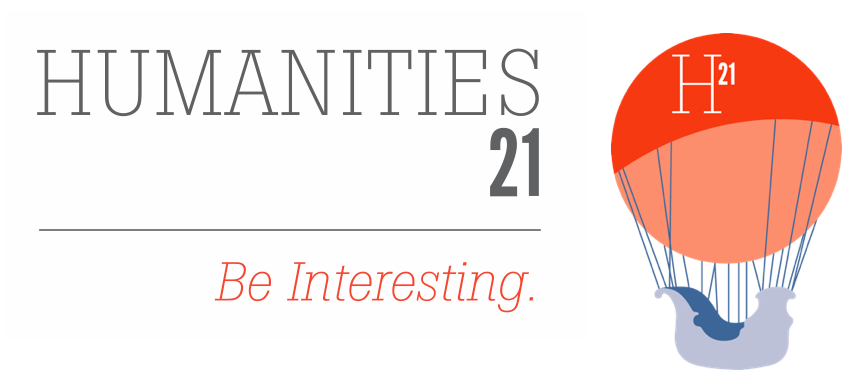Arts@work profile — emma russell
Emma Russell is a Historian and Director of History at Work, an advocacy organisation for history and heritage.
Emma has a BA (Hons) from LaTrobe University majoring in history with a minor in Chinese language. She also holds a MA (Public History) from Monash University.
Read more about Emma’s career journey below.
What did you study and what inspired you to pursue this path?
An arts degree at La Trobe with a major in history and a minor in Chinese language. I was always going to do humanities - it satisfied my curiosity about people, behaviour and culture and because empathy and understanding are important for successful, happy societies – although I never really articulated that until I was older.
What is your current occupation?
I still am consulting after some 20 years having founded History At Work within a couple of years of completing my masters. History At Work is my small business based in Melbourne, and it’s very varied – I do a lot of commissioned history work for organisations, institutions, professional bodies. They ask me to write a history of them, which could result in a book, a website, any number of things. I also do interpretive work, museum work, working with collections or doing memoirs and personal histories – it’s a full range.
What aspects of your role do you enjoy the most?
The breadth of work that comes my way and all the opportunities that I’ve had to get to know such a wide range of people who do so many different things.
Thinking back, what was a highlight of your tertiary study?
Discovering there was a community out there that I could join and work with who were doing such interesting work in so many different ways by connecting ordinary people to their many shared and personal histories and heritages.
Discovering that history could be a meaningful profession that made a contribution to the present and the future.
Were there any co-curricular activities you found particularly valuable?
Site visits like our trip to Gariwerd and to Budj Bim. I also particularly loved the third-year research subject I did under Richard Broome which was like a mini-honours. They made me feel like a real historian dealing with primary sources, discovering clues, unravelling leads and solving puzzles.
How do you think your humanities education has shaped you personally and professionally?
It’s given me a really interesting career that I didn’t even know existed when I started at La Trobe. My lecturers and supervisors at Latrobe and later at Monash were generous, thoughtful, and encouraging, giving me the confidence to consider honours, a Masters, and a career. That speaks more to the people I studied under than the humanities education itself, but without those subjects that were offered to me, I would not have been exploring the world of history in the way that I did.
What career advice would you give to current students or recent graduates?
Don’t ever let lack of confidence get in the way of opportunities or possibilities that arise. Some of my best professional experiences came after I reluctantly pushed myself towards them or were pushed by someone else.
Be curious. You never know what path a question, a position or a project could take you down
Finally, what book have you recently read that truly captured your attention?
Peter Ackroyd’s Thames: Sacred River, which I still plan to walk along one day.
And Barbara Kingsolver’s The Poisonwood Bible is about an evangelical Baptist family with four daughters living in the Belgian Congo.


